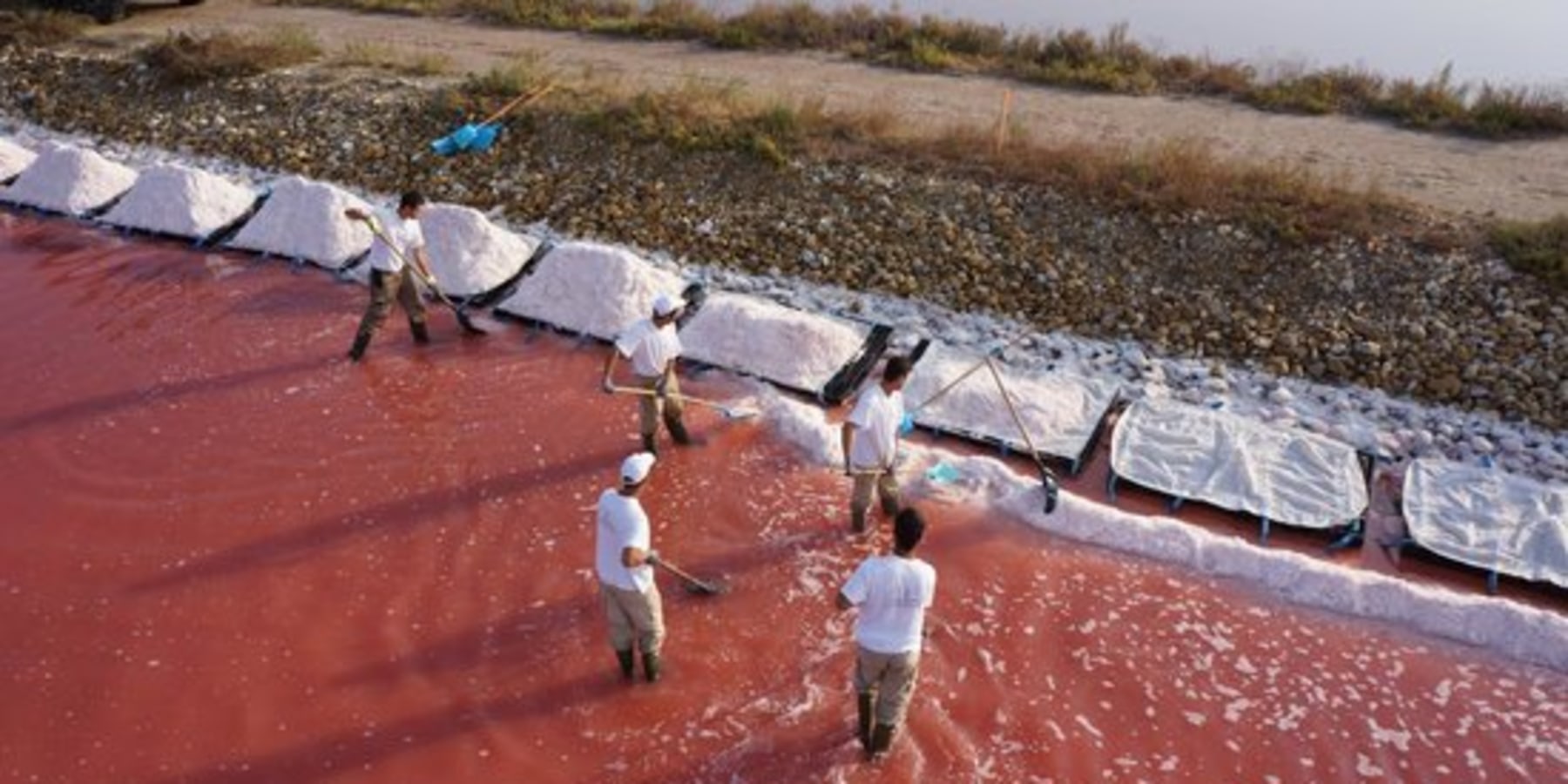
Lac Rose (meaning Pink Lake) lies north of the Cap Vert peninsula of Senegal, some 30 km (18 miles) north-east of the capital, Dakar, in northwest Africa. It is named for its pink waters caused by Dunaliella salina algae and is known for its high salt content, up to 40% in some areas.
The lake is separated from the Atlantic Ocean only by a narrow corridor of dunes, and is named for its pink waters, caused by Dunaliella salina algae. The algae produce a red pigment to assist in absorbing light, which provides energy to create ATP. The colour is particularly visible during the dry season (from November to June) and is less visible during the rainy season (July to October). Magenta coloured samphire bushes flourish in the white sandbanks, and the sand dunes are terra-cotta-coloured.
Salt
The lake is known for its high salt content, up to 40% in some areas, which is mainly due to ingress of seawater and its subsequent evaporation. Like the Dead Sea, the lake is sufficiently buoyant that people can float easily.
Salt is exported across the region by up to 3,000 collectors; men and women from all over Western Africa, who work 6–7 hours a day, and protect their skin with beurre de Karité (shea butter), an emollient produced from Shea nuts which helps avoid tissue damage. The salt is used by Senegalese fishermen to preserve fish, a component of many traditional recipes including the national dish, a fish and rice meal called thieboudienne.
Fish in the lake have adapted to its high salt content by evolving ways to pump out extra salt and keep their water levels balanced. The fish are approximately four times smaller than those living in a normal environment, as a result of saltwater fish dwarfism.

